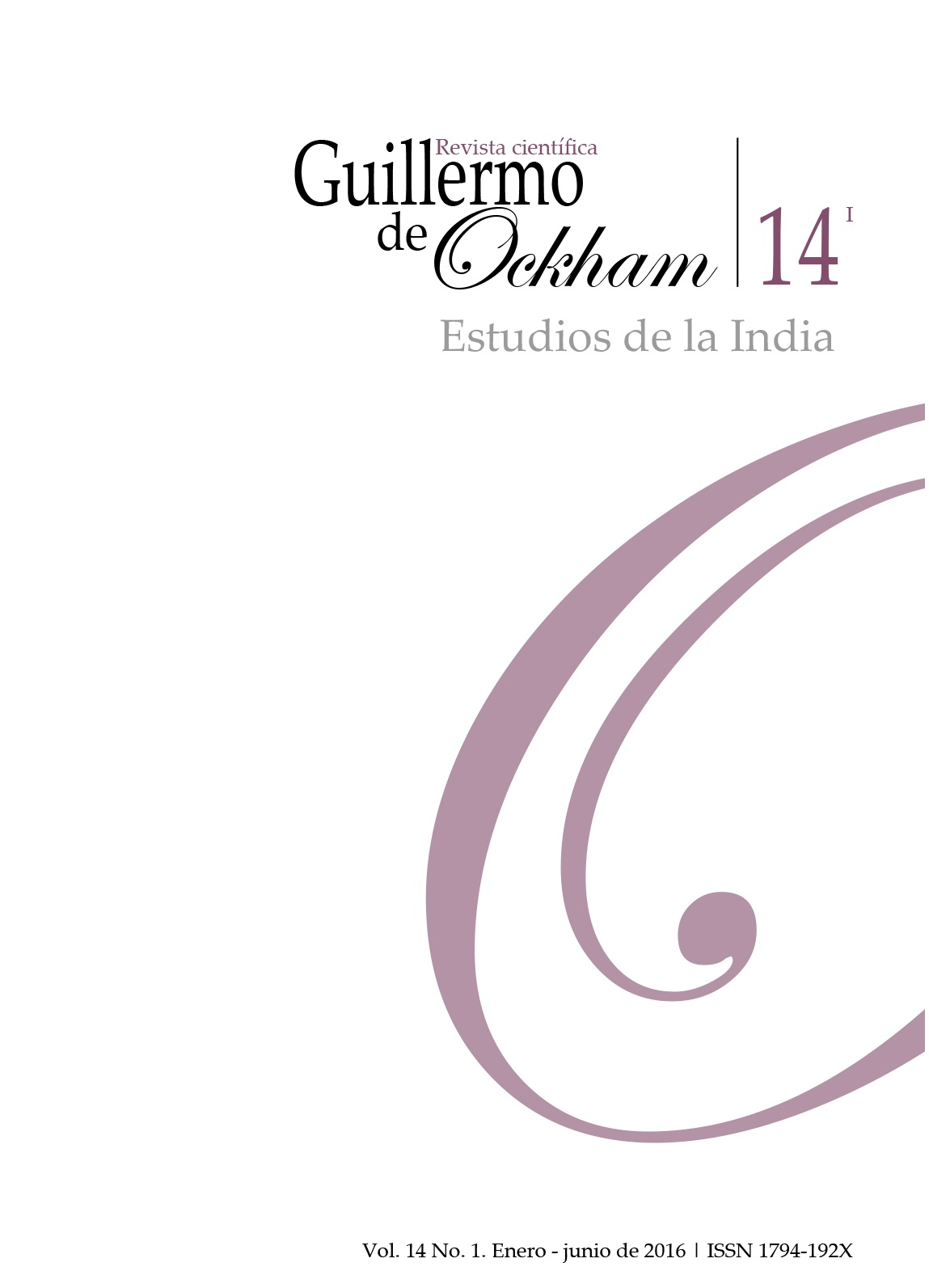The Revista Guillermo de Ockham provides an immediate and open access to its content, based on the principle of offering the public a free access to investigations to provide a global interchange of knowledge.
Unless otherwise established, the contents of this journal has a license with Creative Commons Attribution-NonCommercial-NoDerivatives 4.0 International (CC BY-NC-ND 4.0) http://creativecommons.org/licenses/by-nc-nd/4.0/
- Attribution: You must give appropriate credit, provide a link to the license, and indicate if changes were made. You may do so in any reasonable manner, but not in any way that suggests the licensor endorses you or your use.
- NonCommercial: You may not use the material for commercial purposes.
- NoDerivatives: If you remix, transform, or build upon the material, you may not distribute the modified material.
- No additional restrictions: You may not apply legal terms or technological measures that legally restrict others from doing anything the license permits.
Abstract
References
Beigel, F. (ed.) (2013).The Politics of Academic Autonomy in Latin America. Ashgate: Burlington.
Beigel, F., & Salatino, M. (2015). Circuitos segmentados de consagración académica: las revistas de Ciencias Sociales y Humanas en la Argentina. Información, Cultura y Sociedad, 32, 11-36.
Burges, S. (2012). Response to Questionnaire on India and Latin America. FPRC Journal, 3, 19-24.
Cattedra, O. (2015). La tradición india en el pensamiento de Francisco García Bazán. En B. Nantey & L. Pinkler (Comp.), Gnosis y tradiciones sagradas. Buenos Aires: El hilo de Ariadna.
Facchini, G., Olarreaga, M., Silva, P., & Willmann, G. (2010). Substitutability and Protectionism: Latin America's Trade Policy and Imports from China and India. The World Bank Economic Review, 24(3), 446-473.
Gasquet, A. (2015). El llamado de Oriente. Historia del orientalismo argentino (1900-1950). Buenos Aires: Eudeba.
Gaur. M., & Gaur, I. eds. (2012). India and Latinoamerica, número especial del Foreign Policy Research Centre Journal, Vol. 3.
Heine, J. (2012). Response to Questionnaire on India and Latin America. FPRC Journal, 3, 5-11.
Heine, J., & Viswanathan, R. (2011). The Other BRIC in Latin America: India. En Americas Quarterly: The New Brazil and the Changing Hemisphere, no. 5. no. 2 (Spring).
Lederman, D., Olarreaga, M., & Perry, G. E. (2009). China’s and India’s Challenge to Latin America. Opportunity or Threat? WA: The World Bank.
Leite, E. (2012). Brazil-India University Interchange. FPRC Journal, 3, 58-67.
Martino, G. (2015). Cuestiones en torno a la filosofía de la India. Tendencias académicas en las universidades de Argentina y dilemas (meta)filosóficos. Journal de Ciencias Sociales, 3(5), 1-22.
Mesquita-Moreira, M. (2012). Response to Questionnaire on India and Latin America. FPRC Journal, 3, 12-14.
Narayanan, R. (1983). Latin American Studies in India. Latin American Research Review, 18(3), 179-184.
Perry, G. (2006). Latin America and the Caribbeans Response to the Growth of China and India: Overview of Research Findings and Policy Implications. World Bank.
Rodriguez de la Vega, L., & Lavolpe, F. (2014). Diversidades: Asia y África en perspectivas desde América del Sur. Buenos Aires: UNLZ.
Rodriguez de la Vega, L., & Lavolpe, F. (2015). Perspectivas Sobre La India: Pasados y Presentes. Buenos Aires: UNLZ.
Rubiolo, M. F., & Baroni, P. A. (2014). El rol de las economías emergentes en el siglo XXI: el caso de India en América Latina y su vinculación con Argentina. Temas y debates, 7(18), 101-121.
Shidore, S. (2013). New Frontiers in South-South Engagement. Relationship between India and Latin America & the Caribbean. New Delhi: Indian Council of World Affairs, Sapru House.
Singh, P. (2012). A New Era in India-Latin America Relations: Symptoms and Substance. FPRC Journal, 3, 68-75.
Solís, B. P. (2001). Las relaciones entre México y la India, 1995-2000. Foro Internacional, 41(4), 891-900.
Solís, B. P. (2008). Las relaciones entre México e India, 2000-2006. Foro Internacional, 48 (2), 487-493.
Tharoor, S. (2012). India-Latin America Relations: A Work in Progress. Georgetown Journal of International Affairs, 13(2), 69-74.
Tripathi, R. (2012). Sixty Years of Sanskrit Studies (1950–2010). New Delhi: Rashtriya Sanskrit Sansthan.
































